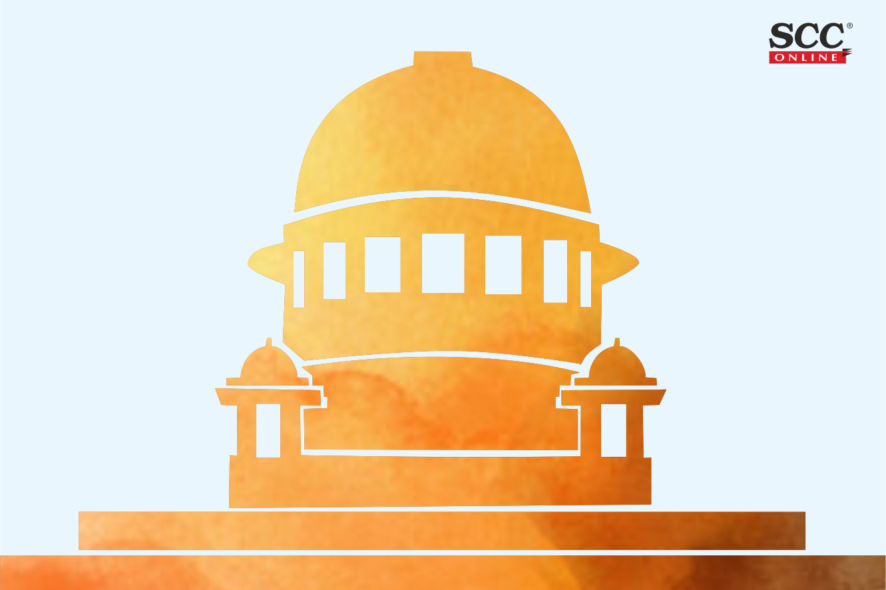Supreme Court: A Division Bench comprising of Navin Sinha and R. Subhash Reddy, JJ. held that the period of limitation for filing a complaint in case of ‘misbranding’ punishable under Section 29 of the Insecticides Act, 1968 starts from the date of receiving the report from Insecticide Analyst, and there is no reason to seek computation of limitation only from the date of receipt of report from the Central Insecticide Testing Laboratory.
The Supreme Court quashed a criminal complaint filed against the appellant−Company alleging ‘misbranding’ and violation of provisions of the Insecticides Act, holding that the complaint was barred by limitation.
Facts, Timeline and Appeal
The appellant−Company was engaged in manufacture of insecticides. On 10-2-2011, Insecticide Inspector (Attari, Amristsar) carried out an inspection in the premises of one of its dealers, where he found 60 tins of insecticide “Trizophos 40% E.C.” kept for sale. The Insecticide Inspector took test samples and sent them for analysis at Insecticide Testing Laboratory, Ludhiana on 17-2-2011. The report of the analysis from Insecticide Testing Laboratory, Ludhiana was received on 14-3-2011, and it was found that the samples contained active ingredient to the extent of 34.70% only as against the labelled declaration of 40%. Alleging that it amounts to ‘misbranding’ within the meaning of Section 3(k)(i) of the Insecticides Act and sale of such item is an offence under Section 17, 18 and 33 punishable under Section 29 of the Act, the Insecticide Inspector lodged a complaint against the Company before the Chief Judicial Magistrate, Amritsar on 25-3-2014.
The Company filed a petition before the Punjab and Haryana High Court seeking quashing of the complaint mainly on the ground that it was barred by limitation. However, the High Court dismissed their petition. Aggrieved, the Company approached the Supreme Court.
Analysis and Observations
The Court noted that the instant was a case of misbranding within the meaning of Section 3(k)(i) and selling of such misbranded items is in violation of Sections 17, 18 and 33, punishable under Section 29 of the Insecticides Act. Reading Section 29, the Court found that the maximum punishment for such an offence is imprisonment of three years or fine or both (going even by the punishment provided for a second and subsequent offence).
Next, the Court referred to Section 468 CrPC which prohibits taking cognizance of an offence after the lapse of limitation period. As per Section 468(2)(c), the period of limitation is three years for an offence punishable with imprisonment for a term exceeding one year but not exceeding three years.
Further, Section 469 CrPC deals with the commencement of limitation period. It provides that the limitation period, in relation to an offender, commences on the date of offence or where the commission of the offence was not known to the person aggrieved or to any police officer, then the first day on which such offence comes to the knowledge of the such person or to any police officer, whichever is earlier.
In the instant case, the complainant−Insecticide Inspector received the analysis report from Insecticide Testing Laboratory, Ludhiana on 14-3-2011 and the complaint was lodged on 25-3-2014, which was beyond a period of three years. The only submission of the State was that further report from the Central Insecticide Testing Laboratory was received on 9-12-2011 which is conclusive evidence of facts, and as such, the complaint was within limitation period. Not convinced with State’s submission, the Court observed:
“When it is clear from the language of Section 469 CrPC that the period of limitation shall commence on the date of offence, there is no reason to seek computation of limitation only from the date of receipt of report of the Central Insecticide Testing Laboratory, Faridabad.”
The Court was of the opinion that as per the procedure prescribed under Insecticides Act, 1968 and the rules made thereunder, the Insecticide Testing Laboratory, Ludhiana was competent authority to which sample was sent and report of analysis was received on 14-3-2011. As such, that date was the crucial date for commencement of the limitation period. The Court stated:
“Merely because a further request is made for sending the sample to the Central Insecticide Laboratory, as contemplated under Section 24(4) of the Act, which report was received on 9-12-2011, receipt of such analysis report on 9-12-2011 cannot be the basis of commencement of limitation.”
The Court concluded by holding that the report received from Insecticide Testing Laboratory, Ludhiana on 14-3-2011 itself indicated misbranding as stated in the complaint, thus, the limitation period within the meaning of Section 469 CrPC commenced from 14-3-2011 only.
Decision
The Court was of clear opinion that the complaint filed was barred by limitation and allowing the proceedings to continue on such complaint would amount to abuse of process of law.
In such a view of the matter, the Court allowed the criminal appeal and set aside the impugned order of the Punjab and Haryana High Court. The complaint filed by the Insecticide Inspector against the Company was quashed. [Cheminova (India) Ltd. v. State of Punjab, 2021 SCC OnLine SC 541, decided on 4-8-2021]







